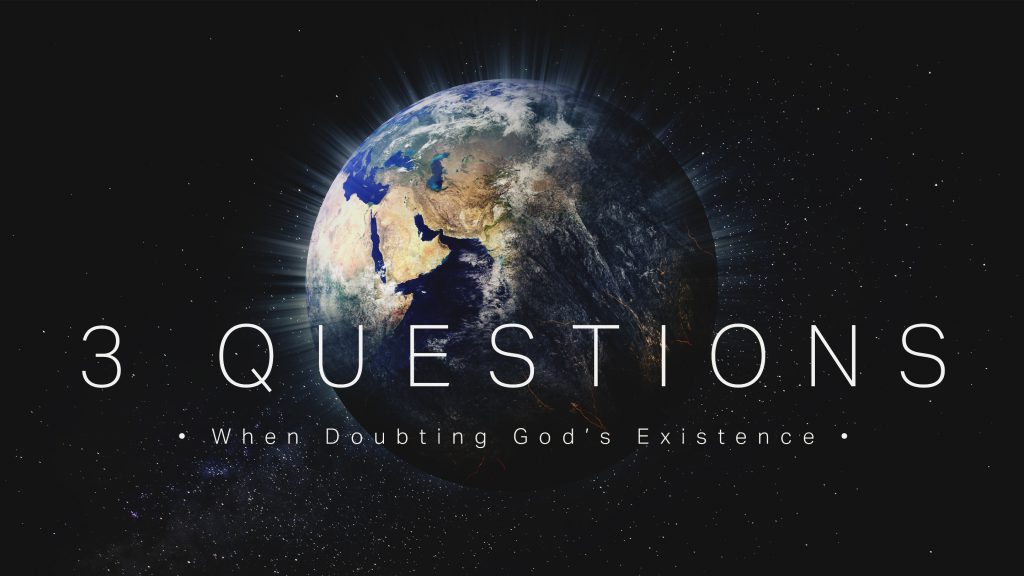When you or someone you know doubts God’s existence, these three simple questions can be helpful:
- Have I ever seen something come from nothing? Alternative theories for the creation of the universe are driven by individuals who claim to be making conclusions rooted in observational evidence (i.e., making a claim because you have observed something in action). The problem is that every purported theory other than biblical creationism is forced to suggest that at one point there was nothing…and then suddenly (for no reason) there became something. But every rational person knows that every effect has a cause, and every effect must have an adequate cause. Furthermore, no one in history has ever observed something coming from nothing. Therefore, an assertion that our vast universe came from nothing (without any higher Cause) draws a conclusion without making an observation to support it. A higher Cause (better known as God) is the only sensible explanation for our existence.
- Would I rather have a prosthetic leg, or the real human leg? Many advances have been made in prostheses over the last several decades. My great-grandfather’s prosthetic leg (which, despite his passing, I oddly still possess today) looks significantly less sophisticated than the prosthetic leg that my grandmother used decades later in the final months of her life. The former resembles something more of a peg leg from a pirate ship, whereas the latter resembled something that could attach to the bionic man or a robot. Yet, despite major advances, I’d expect that every single person would choose the real human leg over the prosthesis. Why? Because everyone recognizes its superior qualities. But which one was designed – the real human leg or the prosthetic leg? To suggest that the inferior prosthesis was carefully and intentionally designed, while simultaneously claiming that the superior human leg was the result of mere chance and luck, is to stand in conflict with yourself. Thomas Warren brilliantly made this argument years ago when debating atheist Anthony Flew, and the reasoning still stands today. Design is clearly evident in the human leg, and design demands a designer – an Intelligent Designer (better known as God).
- Where do my senses of ‘ought’ and ‘should not’ come from? If I align myself with the secular scientist’s explanation of the origin of species via evolution, then I must toe the party line and say that humans are merely a more highly-evolved animal with no more intrinsic value or value-system than a snake, salamander, or sloth. But every human being on the planet has the sense that there are things that they ought to do, as well as the sense that there are things that they should not do. Where do these senses (commonly known as morals) come from? In the animal world every day, there are things that take place that are vile and despicable in the minds of humans. Regularly male grizzly bears will practice infanticide, in which they will kill the offspring of a female grizzly to lessen their competition in the propagation of their genetics. In no human society today would this practice be found acceptable. Why not? What arbitrates whether this type of action is acceptable or not? A critic might suggest that these senses of ‘ought’ and ‘should not’ have simply been handed down through the ages and have become societally ingrained and accepted. But if this is true, at what point along the way did someone determine or communicate that one particular action was right, while another was wrong – and what gave them that sense? A supreme Lawgiver (better known as God) is the only reasonable explanation for how those urges and senses originated.
The Bible tells us that the existence of God is clearly evident in the things that have been made (the universe, the leg, the law), to the point that we are without excuse when we deny Him (Romans 1:20).
– Jordan Moore
